|
11/20/2018 0 Comments Spreading WINGS: Building the next generation of non-profit leaders supporting women in science and exploration
By Lauren Koenig
When Sophie Hollingsworth was 16 years old, her mother encouraged her to get a job – even though all she wanted to do was travel and explore. “After a lot of rejections, I got a job as a cleaning lady working on a yacht in Puerto Rico,” Sophie explains. “It was not glamorous by any stretch of the imagination, but I was able to make money and see the world. Slowly, I climbed the ranks from cleaning lady to captain and had the opportunity to sail across oceans and travel all around the Caribbean, Central America and the South Pacific. Those experiences laid the groundwork for everything I do today.” It would be impossible to pin down Sophie’s interests to a single career– the former ballerina founded AquaAid International, an organization that provides sustainable sources of water for villages in Central America and Sub-Sarahan Africa. At a time when even the most remote parts of the world seem to have been mapped by satellites, Sophie embodies the true meaning of a modern explorer. She was recognized as such with a new award by The Explorers Club in 2017. What you don’t see on Sophie’s blog (The Sofia Log), or on the social media accounts of other field scientists and explorers, is the planning and funding required for expeditions. Much like exotic vacations, global exploration comes with expenses. When planning her research trip to the remote archipelago of Vanuatu, Sophie sought out support from a variety of organizations. This was her introduction to WINGS WorldQuest, a non-profit that supports and recognizes extraordinary women in science and exploration. Since its founding in 2003, WINGS has provided over $635,000 in research and field funding for over 120 female explorers around the world. With many grant-giving organizations limiting the uses of their funds, WINGS is unique in that its Women of Discovery grants are completely unrestricted. The women who receive these awards are able to direct the funds to support their greatest needs at the time. One of WINGS’ flagship programs is its Flag Carrier program, which provides a grant to field researchers for expeditions. When Sophie and her team carried the WINGS Flag to Vanuatu in 2016 to study and promote advocacy for the country’s few female chiefs, she did not know the impact this organization would have on her accelerating career as a young explorer. Science and Non-profit organizations WINGS, like many similar organizations, offers more than an arms-length financial relationship with active researchers. The variety of roles required to run a science-based non-profit often leads to a more diverse working group than in traditional scientific disciplines; scientists collaborate with people who hold liberal arts degrees, united by a mutual appreciation for the non-profit’s objective. A sampling of WINGS’ Board of Directors includes a filmmaker, an environmental consultant, a polar explorer, and several artists.
Today, more PhDs are viewing non-profit work as an alternative career path to academia. The non-profit sector is the third largest employer in the U.S. More than half of non-profits are in the healthcare industry – a huge potential landing pad for life science students finishing graduate school. Other scientists use their problem-solving skills to start their own organizations, lend their time and expertise as part-time consultants, or work remotely for online publications.
In a Naturejobs article, Julie Gould summarizes, “Roles for scientists in the non-profit sector are as diverse as the types of organizations that exist in it. Scientists might, for example, do bench research, manage large-scale community projects, work with disease-advocacy groups or become science communicators at professional societies.” A Fresh Perspective The number of non-profits is also on the rise, as younger people seem to be joining and initiating organizations as a means of filling a new niche, solving a new problem, or escaping the bureaucracy and stagnancy of more established groups. The same year that Sophie became a WINGS Flag carrier, Kimi Goldstein, an NYC-based young professional with a degree in biomedical engineering, attended WINGS’ Women of Discovery Awards Gala and was inspired to help the organization expand. She inquired about starting a Junior Board to supplement the Board of Directors. Her proposal was approved by the Board and only two years later, the Junior Council has grown to include eight women aged 35 and younger who are equally passionate about supporting the mission of WINGS. “Having led numerous organizations when I was in school, I was eager to find an opportunity outside my job to support a cause that was meaningful to me personally,” says Kimi who currently serves as the council’s Co-Chair. “I’ve been interested in science and exploration my whole life and having faced some of the barriers to entry and success for women in STEM in college, I know how important it is for women scientists and explorers to have support and recognition.” The Junior Council works closely with the Board on several of their major initiatives, such as the Women of Discovery Awards and various flash campaigns, but they also seek to bring a different perspective to the organization. The council aims to reach a younger demographic by hosting events and developing communications to help young women learn about careers in the field sciences, leveraging the Fellows and Flag Carriers as role models. “Through fundraising and the growth of the Junior Council, we hope to expand the reach of WINGS and enable more extraordinary women in science and exploration to do their work and make the discoveries they do,” says Kimi. Skill Building Fundraising is key to the future growth of WINGS. The organization is supported by donations and grants from individuals and foundations, and raised through a variety of channels, including events such as Explorers’ Talks, campaigns, and the annual Women of Discovery Awards event. WINGS also has an active social media presence and shares content across multiple media platforms: the WINGS blog, newsletters, and Flag Carrier Reports, which document the explorations of the WINGS Flag Carriers. Scientists interested in pursuing a career in non-profit work may find their grant writing skills to be in extremely high demand in this sector. Previous volunteer work and internships also demonstrate to prospective employers that a scientist is well-rounded and interested in giving back to the community. Joanna Stone, a member of the Junior Council, cites three very different experiences that helped prepare her to succeed with WINGS: serving as a Board Member for the March of Dimes Houston Chapter, running her own business, Barre Vida, and creating a new Global Connections program as a graduate student. “As the chair [of Global Connections], I learned how to work with the other departments on campus to hold and sponsor events with a very limited budget,” she said. “All of these experiences have helped me to take initiative on WINGS Junior Council projects that require networking, negotiating, planning, organizing, and leadership skills.”
Non-Profit vs. For-Profit
While working at a non-profit may allow for greater freedom away from the lab bench, it has its own challenges like any business. Students looking to leave the student lifestyle behind may feel frustrated that many non-profit positions are listed as volunteer or internships only. However, the opportunity may be worth the time investment or a second job for several reasons. “As a volunteer at a non-profit, there are ample ways to have an impact and make connections,” says WINGS Junior Council Co-Chair Laura Hellman. “There are almost always ways that you can take on responsibility, show you care about the mission of the organization, and are willing to put in effort to help out the rest of the team.” It may be possible to leverage a volunteer position into employment, even if it’s outside the group. “You should take the opportunity to get to know people throughout the organization as you volunteer or intern - chances are, there are teams looking to grow in number or replace positions somewhere in the organization,” Laura recommends. A major critique of non-profits is their vulnerability to economic change and the instability that results from relying on a donation-based business model. While this is true for some organizations, a majority of non-profits raise funds through multiple outlets, such as charging fees for services. “While work at non-profits get attention for its challenges (typically a lower salary), this not a new problem and does not need to be a gating issue,” says Laura. “The gratification of working every day to drive a mission you’re passionate about could very well more than make up for the incremental loss of salary (and a number of for-profit jobs don’t necessarily offer a meaningfully higher salary, anyways).” “Beyond this, work in a non-profit vs. for-profit business may be less different than you might think. Every job has responsibilities, involves teamwork and has a full range of roles that need to be filled by hardworking, driven members of the organization,” she says. “In a non-profit, though, you get the added benefit of knowing your organizational goals are more meaningful to your coworkers and to your broader community.” Forging Connections The most rewarding aspects of working in a non-profit that outshine any of the challenges appears to be a sense of purpose and the network and connections forged among the community. Laura describes her work with WINGS: “I find it very gratifying to be able to meaningfullly support women and encourage their success. Beyond the rewarding aspects of positively impacting women’s achievements in science and exploration, being involved with WINGS, and specifically the Junior Council, allows me to connect with like-minded women and work towards shared goals. There are considerable opportunities to bring ideas to the table and drive the organization forward, which is motivating and exciting!” Sophie Hollingsworth, who now serves as the Junior Council’s Explorer in Residence, praised the non-profit’s network as being beneficial for the explorers as well. “Being a part of the WINGS community has provided unparalleled camaraderie with a group of women in the science and exploration fields,” she said. “In my everyday work, I rarely come across fellow women in the field and often feel like an alien when I discuss my work with people. That is not the case with WINGS. At WINGS I am normal, I am surrounded by women in similar fields, and we all support each other towards our dreams.” Whether or not non-profit work is in your future – as a volunteer, employee, sponsor or explorer – the growth of alternative career options presents exciting opportunities that expand available job offerings today. “Not everyone has to have a linear career path,” says Sophie. “There is a danger in thinking that we must follow one career track that we choose at the age of 18. Such a single-minded focus leaves us with blinders that limits us from seeing all of the opportunities that life presents.” When asked about what her own career goals, Sophie said she would like to use exploration to help achieve a more sustainable and equitable future and to be happy. “Under that plan there are a plethora of tracks that require a lot of pivoting and stepping out of my comfort zone to achieve. But life is too short to do anything less than what you are passionate about.” 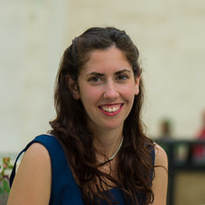
About the Author
Lauren is the Editor-in-Chief of the Scientista Foundation and a graduate student at Michigan State University studying the behavior and physiology of electric fish. Since obtaining her B.A. in biology from Vanderbilt University, she worked on several wildlife research projects throughout North and South America. She is excited to work with Scientista to increase accessibility to research and expand outreach efforts geared for women in STEM. Her experience in science writing includes an internship with publisher John Wiley & Sons Inc., working as science editor for the Vanderbilt McLaughlin neurology lab, and serving on the staff of her university’s newspaper. In her free time, Lauren enjoys wildlife photography, kayaking, and dance. Comments? Leave them below!
0 Comments
Your comment will be posted after it is approved.
Leave a Reply. |
Archives
July 2022
CategoriesAll Amy Massack BiWeekly Roundup Danae Dodge Gabrielle-Ann Torre Indulekha Karunakaran Jeesoo Sohn Lauren Koenig Lidiya Angelova Melissa Bendayan Microsoft Molly Connell Nektaria Riso Nicole Hellessey Physics Poornima Peiris Robbin Koenig Sadaf Atarod Sarah Smith Shreya Challa Vijendra Agarwal Women In STEM Yolanda Lannquist |
The Network for Pre-Professional Women in Science and Engineering
The Scientista Foundation is a registered 501(c)(3) -- Donate!

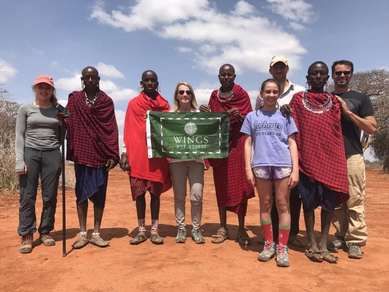
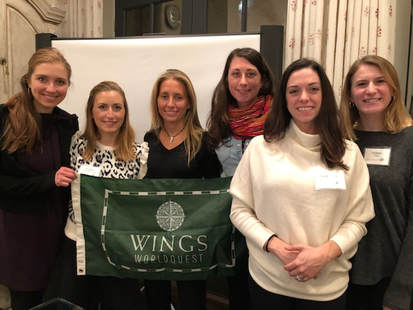
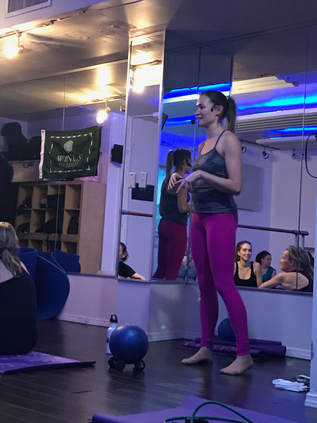
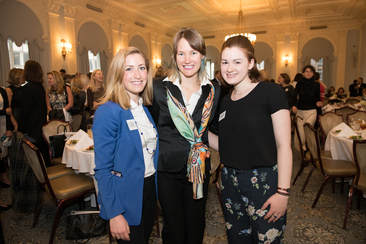
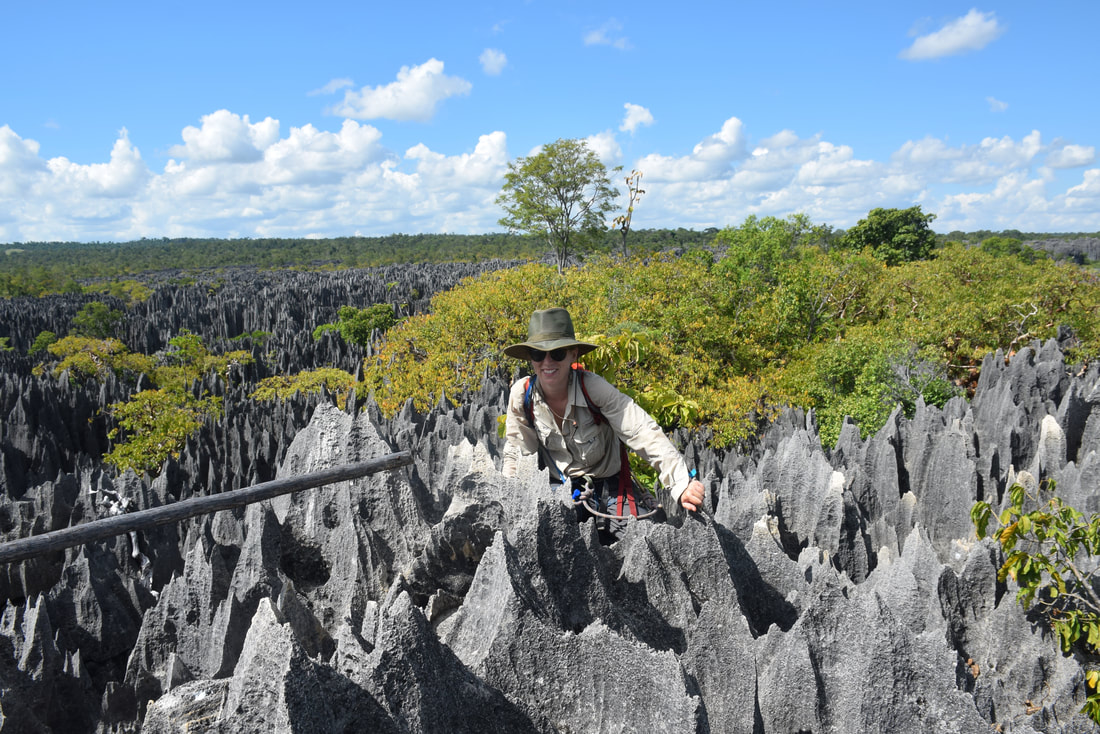
 RSS Feed
RSS Feed